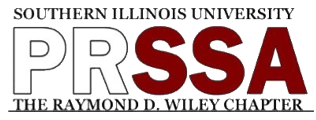While the COVID-19 pandemic has slowly receded, remote and hybrid work have quickly made its place into the daily routine of many lives. Some may say remote and hybrid work is just temporary and is not reliable; however, according to Dick Grave in Remote, Hybrid or In-Office PR, this work setting for the “PR industry is particularly well-suited.”
Why would working remote or hybrid become such a game changer for the PR industry? Dick Grave wrote that the most common answer is “freedom and a better work-life balance.” Aside from this basic answer there are other benefits as well. The absence of the work commute, working from the comfort of one’s home, and the opportunities to see one’s family during the day have all been positive effects from a remote and hybrid work day. Working remotely has also encouraged more creative ideas. Within the comfort of your home you will feel more confident and ‘safer’ in voicing your creative ideas within a zoom meeting rather than sitting in an intimidating conference room. All of these benefits, together, create a positive atmosphere and a boost in productivity.
Remote and hybrid work has had a positive effect on communication, which is crucial for the PR industry. Having to go fully remote or even hybrid has brought about the absence of the social cues and conversations that one would normally see in the workplace. Instead of relying on the facial expressions and tone of a speaker’s voice, one is now having to decipher the tone of an email or the context of a text message. While some may see this issue as a downfall of remote and hybrid work, David Partain in Open Your Digital Doors: Communication and Remote Work sees this as a learning opportunity. He wrote “This change [remote work] is one of the best things that’s come out of the experience [pandemic] because without the usual connections around the water cooler, managers have to be intentional about communicating with their teams to achieve success.”
In order to be intentional in communication, PR industries began harnessing efficient tools. One of the most popular tools being Slack; an instant messaging app for businesses that connects workers to the information they need. During a single work day you may be a part of 10+ conversations with various people. Remembering the context for each one would be difficult and confusing. Slack has shown itself to be reliable through its ability to organize your various conversations and provides easy access to each. Will Sprunt, Deliveroo’s chief information officer was quoted in the article, The Powering Productivity in the Workplace, as saying, “It [Slack} is a very immediate and straightforward method of communication, and really the only channel that people prefer and enjoy using.” If you don’t want to take Will Sprunt’s word for it, you could look at the data retrieved by Lauren Johnson who wrote Powering Productivity in the Workplace. Lauren Johnson states that “12 million people actively use Slack to read and write messages, upload and comment on files, perform searches, interact with app integrations and build custom ‘Slackbots’.”
Slack is just one of the many different communication tools that the PR Industry uses. The PR industry has also incorporated the use of Google Docs which has many features.One feature in particular is the ability to collaborate on projects. Instead of working on a document and then emailing it to coworkers to work on it, Google Docs allows for people to access the same document and work on it simultaneously. Sherweb, which is a cloud service provider, explained in How Google Docs Works for Business that “When employees work in scattered, remote areas, Google Docs lets you all work together on the same document at the same time; it keeps track of every change.” Let’s say you are assigned to write a press release for a sports team and you are very limited on your knowledge of sports. With remote work, you are not limited to working with coworkers who share a building with you, but you are able to work with people all around the world. You may not know information about the sports team but the PR representative in St. Louis,who your company works with, may. You could invite them onto the Google Doc where you are writing the press release and ask them to assist. This feature not only saves time, but also saves money.
Just with Slack and Google Docs, the PR industry has been able to thrive tremendously. While remote and hybrid communication started out as a challenge, it has now been developed and strengthened. While some may mourn the loss of the old way, there are many who are witnessing and experiencing the benefits and positive impacts of the new way of doing things. These online tools have opened up a whole world of opportunities and have stirred excitement among people who are waiting to see what happens next!
 SIU PRSSA Southern Illinois University Public Relations Student Society of America
SIU PRSSA Southern Illinois University Public Relations Student Society of America




